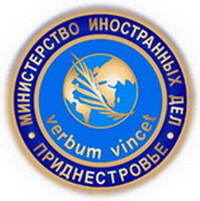Regarding media reports on a statement by High Representative of the European Union for Foreign Affairs and Security Policy Catherine Ashton voiced on October 15, 2014, and enquiries received by the PMR's MFA from Pridnestrovian citizens and public organizations, the Foreign Ministry of the PMR informs of the following.
The PMR's MFA was concerned by the information on the possible Ukraine's joining the EU's visa restrictions in relation to representatives of Pridnestrovie. Visa ban was extended again by the EU Council till October 31, 2014, and on October 15, 2014 the EU Authorized Representative informed of Ukraine's joining the EU sanctions.
The Foreign Ministry of the PMR requested official representatives of Ukraine and the European Union in the Permanent Conference in the 5+2 format to initiate consultations and provide clarifications of the situation taking into account possible changes of Ukraine's approaches and move from diplomatic instruments in the dialogue to open pressure through sanctions against one of the equal sides of the negotiation process – Pridnestrovie.
The MFA of the PMR reminds that a number of restrictive and blockade measures for the foreign economic activities, banking transactions and transport communication are applied against Pridnestrovie by Moldova, Ukraine and the EU. Another increase in number of participants that place pressure on the Pridnestrovian side, certainly, deforms interaction in the negotiation process and may be considered as demonstrating the desire of several “5+2” participants to exacerbate the situation around Pridnestrovie by provoking tensions artificially both between the conflicting parties, and between the participants of the negotiation process, including Ukraine and the EU.
We also have to remind that the resumption of a full functionality of the negotiation process in 2012 after nearly a six-year pause, resulting from restrictions introduced by Ukraine in relation to Pridnestrovian foreign economic activity at the initiative of Moldova, became possible upon reaching an agreement on the non-use of unilateral steps leading to deterioration of the standing of one of the parties. If Ukraine and the EU as participants of the negotiation process admit the possibility of further work in the “5+2” format by switching from collaboration towards strangulation, such a possible choice will be considered as going beyond diplomacy, logic and justice.
When restarting the work of the Permanent Conference in the “5+2” format, it was Pridnestrovie that proactively supported initiation of the policy of small steps aimed at lowering conflict intensity between the sides, hoping for consistency within the negotiations and of one of its most important participants – Ukraine.
It should be emphasized that for the past period Pridnestrovie has put forward substantive initiatives aimed at enhancing the socio-economic interaction many times more than other participants in the negotiation process and, above all, the Moldovan side, thereby promoting progress at the highest level of agreement in the framework of the “small steps tactics”. Today the “slippage” in the negotiations apparently is linked with the fact that the representatives of the Republic of Moldova evade the practical implementation of intentions and orders of the parties' leaders agreed on a January meeting in Odessa, as well as on other international platforms, including Germany (at conferences in Rottach-Egern and Landshut), that may be associated with the political situation in the Republic of Moldova or with a change in approach by attempting to return to the ideology of the past – sanctions and blockades.
The sanction measures, taken by our partners in the talks, contradict to the attempts of the “Permanent Conference” participants at the negotiating table in a multilateral format to ensure, among other things, normal conditions for free movement of citizens of the Republic of Moldova and Pridnestrovie. This issue has been one of the priorities in the negotiation process in recent years, and any deterioration of the situation regarding the freedom of movement is perceived extremely painfully.
The Foreign Ministry of Pridnestrovie expresses hope that the political conjuncture outside the “5+2” format will not block so obviously the interaction in the negotiation format and contribute to the growth of tension in the relations between its members. The Ukraine's decision on accession to the sanctions, constantly prolongated by the EU, threatens to disbalance the negotiation structure and to lose confidence in the relationships between the “Permanent Conference” participants, because it is a flagrant violation of the principles of objective and honest mediation, as well as the very foundations of the work in the “5 + 2” format, and will definitely lead to the undermining of good-neighborly relations and cooperation in the region of conflict.
Pridnestrovie consistently emphasizes its commitment to a peaceful political settlement within the framework of existing formats and exclusively by diplomatic means. If someone of our partners is willing to take a different path, the liability for the consequences of destructive steps will be fully borne by the initiators.








